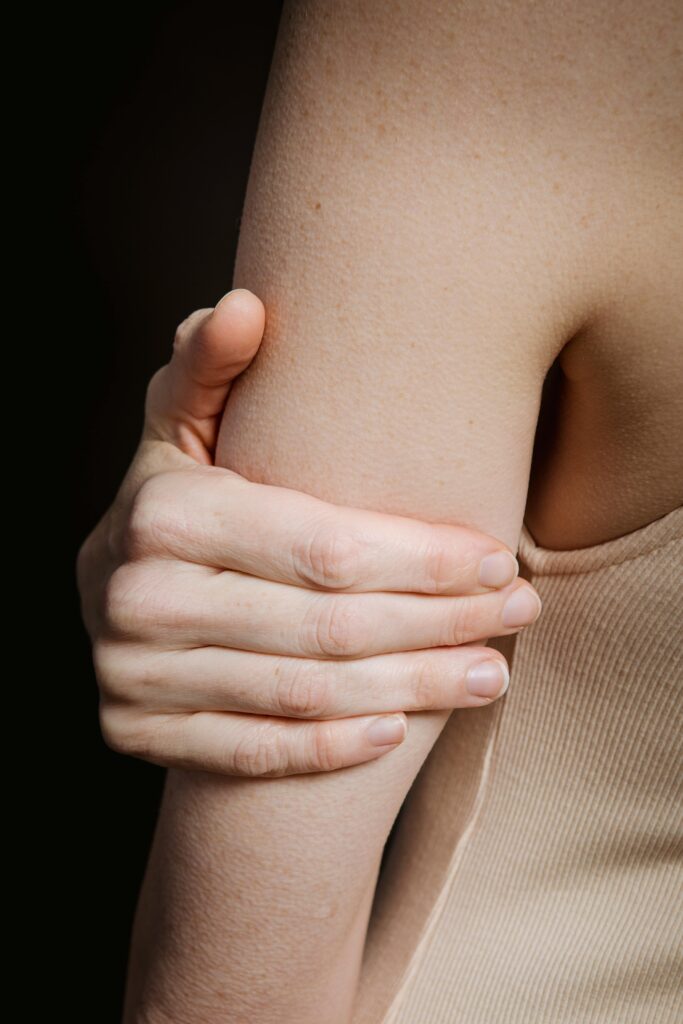Itchy skin, known clinically as “pruritus,” is a common but often under-discussed symptom of menopause, primarily caused by the reduction in estrogen levels. As estrogen decreases, collagen production—a key factor in maintaining healthy, hydrated skin—also declines. This change can lead to skin that feels dry, prickly, and sometimes even like pins and needles. Hormone Replacement Therapy (HRT) can help mitigate these symptoms, providing relief for many women going through menopause by addressing the hormonal imbalances at the root of the issue.
Menopausal itchy skin can affect various parts of the body, including the face, neck, chest, and limbs, often making everyday activities and sleep challenging. The skin may become dry, red, flaky, and more sensitive to irritants, which exacerbates the discomfort. Reduced barrier function and lower natural oils on the skin’s surface further contribute to this condition. If you’re experiencing these symptoms, consulting with a healthcare provider can help you find effective treatments, such as HRT, lifestyle changes, and specific skincare routines, to manage and alleviate itchy skin during this transitional period.
Causes and Prevalence of Itchy Skin During Menopause
The primary cause of itchy skin during menopause is the drop in estrogen levels, which significantly impacts collagen production. Collagen is essential for maintaining skin elasticity and moisture, and its decline can lead to dryness, sagging, and increased skin sensitivity. Estrogen deficiency can cause various skin issues, including dryness, wrinkles, and poor wound healing. Women not using HRT are particularly prone to these symptoms due to the lack of estrogen’s protective effects on the skin.
Estimates suggest that up to 64% or more of women experience some degree of skin discomfort during menopause, highlighting the prevalence of this issue. Itchy skin does not target any specific area and can affect multiple body parts, further illustrating the widespread impact of hormonal changes on overall skin health. HRT has been shown to improve skin elasticity and hydration, reducing symptoms like dryness and itchiness. However, it’s important to consult with a healthcare provider to determine if HRT or other treatments are appropriate for you.
Managing Menopausal Itchy Skin
Managing itchy skin during menopause often requires a combination of lifestyle adjustments, skincare practices, and medical treatments. Moisturising regularly with products containing hydrating agents like hyaluronic acid or ceramides is essential. Avoiding hot showers and using mild cleansers can also help maintain the skin’s natural oils. Dietary changes, such as increasing intake of vitamin E and staying hydrated, can support skin health from within.
Medications like topical corticosteroids or antihistamines may be recommended to alleviate severe itching and inflammation. For some women, HRT can be an effective way to restore estrogen levels, thereby improving skin quality and reducing dryness. Additionally, protective measures such as wearing sunscreen and clothing made from natural fibers can help shield the skin from further irritation. If you’re considering HRT or other treatments for itchy skin, consulting with a healthcare professional is crucial to find the best approach for your needs.
Contact us for more information or book an appointment to day to see how we can help.

